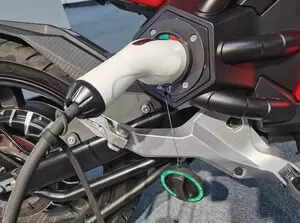
Cambodia is committed to achieving 40 % of electric cars and 70 % of electric motorcycles by 2050 in order to reduce carbon emissions, Minister of Public Works and Transport Peng Ponea said here on Wednesday.
He made the remarks during a dissemination workshop on the National Policy for the Development of Electric Vehicles (EVs) 2024-2030, Xinhua news agency reported.
“The EV sector is one of the high potential sectors, as it has not only enhanced environment and improved public health, but also contributed to the momentum of economic base diversification as well as strengthened energy security,” he said.
“Using EVs has importantly contributed to reducing the impact of carbon dioxide emitted from petrol-powered vehicles,” he added.
Cambodia currently has more than 7 million petrol-driven vehicles, he said, adding that 85 % of them were motorbikes, 10 % were cars, and five % were buses, lorries, and heavy machinery.
Ponea added that to date, the Southeast Asian country has registered a total of 3,676 EVs, and the kingdom has 21 EV charging stations.
The three most popular EV brands in Cambodia are China’s BYD, Japan’s Toyota, and America’s Tesla, according to the Ministry of Public Works and Transport.
According to the National Policy for the Development of EVs, using EVs costs only 9,633 riels (2.34 U.S. dollars) for a distance of 100 kilometres, while using petrol or diesel cars costs up to 35,723 riels (USD 8.69).
Udom Pisey, an EV manager at the Car4you Co., Ltd., which imports Letin Mengo EVs from China, said EVs have far fewer moving parts than petrol or diesel vehicles, so maintenance and repair costs are cheaper than internal combustion vehicles.
“Using EVs not only saves money on fuel but also helps reduce air pollution,” she told Xinhua.

